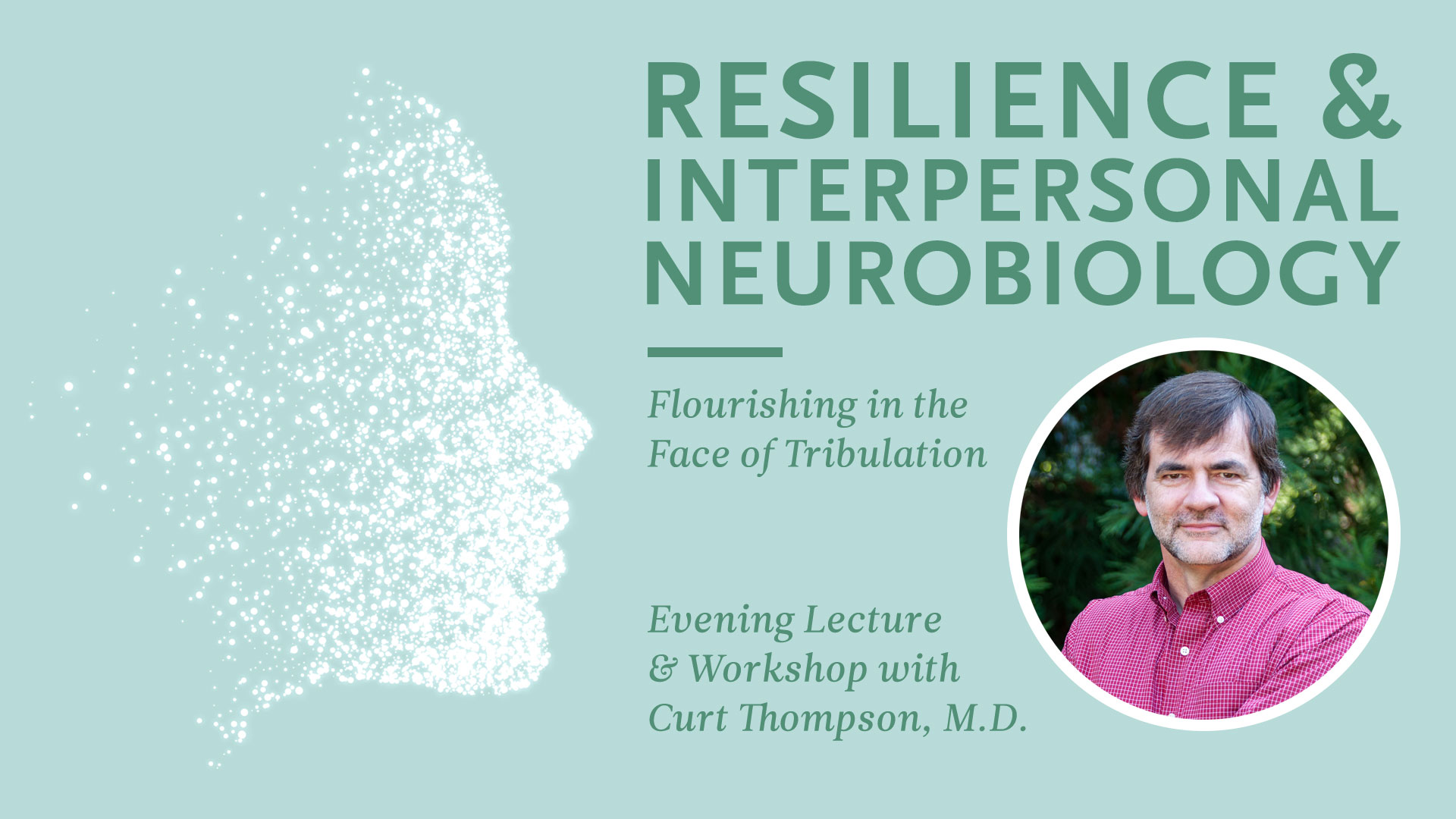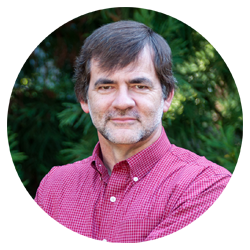Curt Thompson on Resilience and Interpersonal Neurobiology

I have said these things to you, so that in me you may have peace. In the world you will have tribulation. But be of good cheer; I have overcome the world!” – John 16:33
Resilience is the capacity to flexibly adapt—and moreover, to flourish—in the face of adversity. How do we become more resilient, more able not only to withstand the pain of traumatic injuries, be they overwhelming and acute or chronic and subtle, but also to thrive in their aftermath? Are there actions we can take, practices we can implement that will strengthen our depth of resilience, and so reflect the “people of good cheer” Jesus calls us to become? Indeed, evidence from the field of interpersonal neurobiology suggests that we can develop habits that will strengthen our capacity to live in the world—in the face of hard times—and not of it, resisting the corrosive work of evil and the shame it wields in its attempt to devour us.
In this evening lecture and weekend workshop, Dr. Curt Thompson, author of The Soul of Shame and Anatomy of the Soul, will lead us in exploring the practical realities of deepening resilience and fostering neurobiological health, and considering how that growth reflects the ongoing work of the Kingdom of God.
Registration is available individually for the Friday lecture, 7:00-9:00pm, and the Saturday workshop, 9:00am-4:00pm; you can choose to attend either as a standalone event, or register for both as a single seminar. Practicing clinicians will be eligible for two CEU seat hours for the Friday lecture, and six seat hours for the Saturday workshop.
Meet the Presenter

Curt Thompson, M.D., is a psychiatrist in private practice in Falls Church, Virginia and the founder of Being Known and The Center for Being Known, an organization that develops resources to educate and train leaders about the intersection between interpersonal neurobiology, Christian spiritual formation, and vocational creativity. He will be with us to explore how we can grow in resilience and so reflect the work of the Kingdom of God both within and between us.
